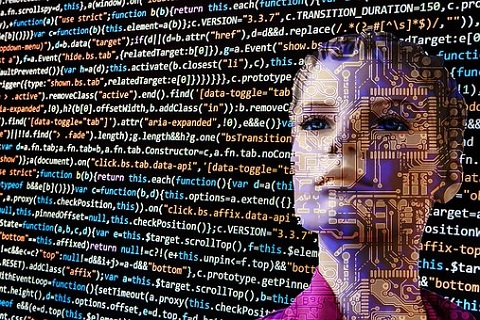Artificial Intelligence- A boon or a bane for employment?
Will the emergence of AI will lead to unemployment?

- Country:
- India
The time to time innovations in technology has resulted in the creation of new computer science, known as Artificial Intelligence. Artificial Intelligence can simply be scribbled down as the replica of human where the intelligence of a human is imbibed in it. The word intelligence is often mistaken and entitled for the highest scorer in class or the one pursuing smarter profession rather it is much more like a symphony of notes where every note is played on a different instrument of comprehension. It is a manifestation of robust automation varying itself from robots, Google, Bing, and other existing technology, indeed artificial intelligence portrays the compilation of all these and eliminates the distractions which exist in human. It illustrates human and its activities incorporating the technological advances in it.
“As soon as it works no one calls it AI anymore”. The words of John McCarthy, who coined the term Artificial Intelligence in 1956 simply portrays the advancement in technology and the human acceptance of it. For so many years, it remained limited to classrooms and labs but now it’s emerging as the big industrial revolution. Artificial Intelligence stretches itself in almost every sector including banking, finance, education, retail, healthcare, agriculture, manufacture, transportation, advertising, and legal offices as well. The tech giants Apple, Microsoft, Google, IBM, and Amazon have amalgamated for an initiative of implementing AI to benefit people and society.
A number of countries including China, the United States, United Kingdom, and Germany have already inculcated artificial intelligence in their system. The Indian government has also taken a step further in enhancing more technology-driven work by the future establishment of a national programme to direct efforts in the area of Artificial Intelligence as mentioned in previous year’s Union Budget.
The question that arouses is “does this automation will result in human redundant in terms of employment? History highlights the fact that technological innovations have always created more employment rather reducing it. Late Physicist Stephen Hawking mentioned in a conference that Artificial Intelligence can serve as a best or the worst thing that has happened to humanity. This was a reply to a question about the inclusion of part of AI in the technology he uses to communicate. He explained that the primitive uses of AI have proved useful so far but he fears the consequences of creating something that can match or surpass humans. Elon Musk, CEO of Tesla and Space X supported the same by considering human intelligence as the biggest threat to humanity whereas Mark Zuckerberg, founder of Facebook defended it vehemently.
Statistics suggest that machines are assumed to take over 47% of employment opportunities in the upcoming years. Economists like Daniel Lacalle mentioned that statistics like the end of jobs in future with technological revolution have worked quite contradictory; the biggest example is German region of Baviera which is amongst the areas with a higher degree of technification and robotization and has a 2.6% unemployment rate.
The existing jobs may become obsolete but the scope of the creation of more skilled labor comes along with artificial intelligence. Humans will be independent of doing the regular, limited value jobs. Similar to every technological innovation, it is also assumed to make a difference in the present working structure. The forthcoming implications of Artificial Intelligence will only define whether the human will be made redundant or not by AI.
- FIRST PUBLISHED IN:
- Devdiscourse News Desk
ALSO READ
IIT-Kharagpur and Google Forge New Alliances in Education and Technology
Massive $10 Billion AI Security Pact Between Google Cloud and Palo Alto Networks
Trump's Tech Ambition: Fusion Power Venture with TAE and Google
AI Revolution: Google's Bold Moves in India
Google and ReNew's Solar Experiment to Power 360,000 Homes in India










